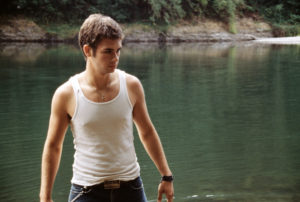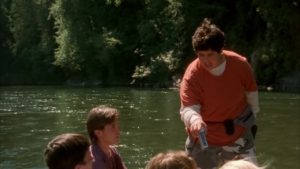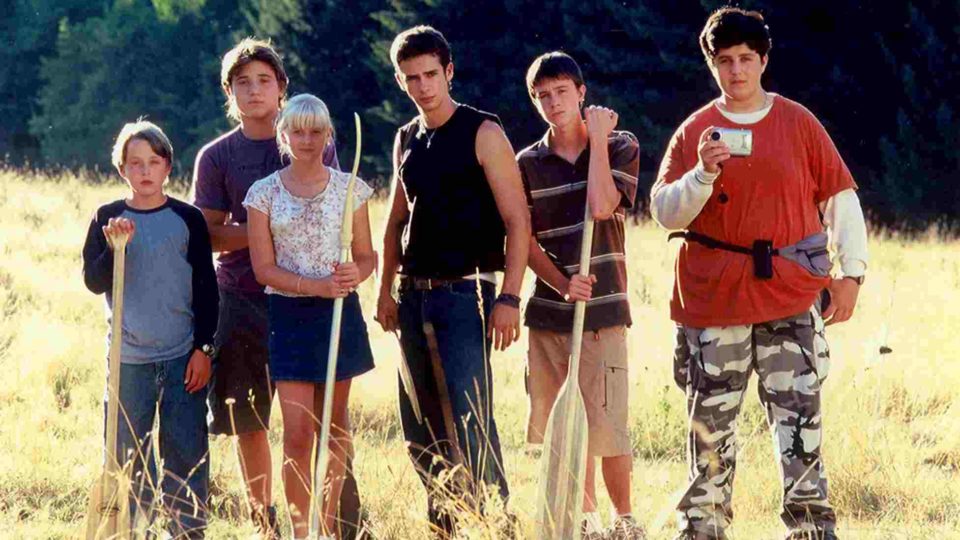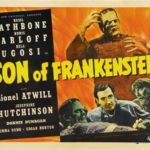Hello everyone! For those of you who don’t know me, which is probably most people, I’d like to introduce myself! My name is Lily Goodman, and I am currently a sophomore at the University of Iowa.
I was a DJ of my own radio show last year on KRUI, and I am now very pleased and excited to announce that I will have my own column titled, “Fresh Bread Film Review” on the KRUI website, dedicated to reviewing independent and lesser-streamed films, something I am very passionate about.

You can expect my reviews to be on movies that are brand-spanking new and possibly just screened at FilmScene to older, independent films that could be difficult to track down online and/or in stores.
Expect to learn about films from across the globe with local actors/actresses, and expect that I am willing to hear you out if you have any suggestions on movies I should check out and review. Just shoot me an email at lily-goodman@uiowa.edu if you have any requests.
Okay, so now that you have the low-down, let’s get to it! The first movie I am going to talk about is the 2004 coming-of-age film, Mean Creek.

I stumbled across director Jacob Aaron Estes’ breakout film one night when I couldn’t fall asleep. It was in the independent section on Netflix, starred a young Josh Peck, and had a four star rating. I figured, why not give it a try? Little did I know how much of an impact Mean Creek would have on me, even five years after watching it for the first time.
The film follows six of your average, American teens and young adults from a small, unspecified Oregon town as they devise and enact what was supposed to be a cruel, yet ultimately harmless act of revenge (if there ever is such a thing), and the consequences they face when their plan goes horribly wrong.
Quiet and slightly awkward, Sam, played by Macaulay Culkin’s younger brother, Rory, is constantly picked on by George Tooney– the overweight and deeply troubled middle school bully, brilliantly portrayed by an almost unknown-at-the-time Josh Peck.

After George attacks Sam and gives him a black eye for touching his new video camera without permission, Sam looks to his protective, older brother, Rocky for advice.
Rocky assures Sam not to worry, and quickly consults his two best friends, the skinny, underdog, Clyde, who honestly seems kind of like the high school version of Sam, and the alpha male, overtly macho and fatherless Marty Blank, who, throughout the course of the film, becomes noticeably just as much of a bully as George Tooney, himself.
The four of them– Sam, Rocky, Clyde and Marty– come up with the perfect practical joke to, as Sam puts it, “hurt him without really hurting him”, and invite George to Sam’s fake birthday party, which includes a day of boating along an isolated river outside of town, oh, and stripping and pushing an unsuspecting George into the river and leaving him to walk home naked.
Of course George agrees to go, as one early and rather poignant scene in the film illustrates– and what anyone who has experienced a schoolyard bully would probably already know– George is lonely, friendless and feels just as misunderstood as the rest of us. He fills this void with purchasing the newest gadgets and gizmos, but would clearly trade in his flat screen TV for some actual, human friends any day.

Thus the game begins. The boys, including George, and Sam’s sort-of, kind-of, it’s-unclear-because-they’re-in-middle-school girlfriend, Millie, all head out to the river.
Pulling a 360 in terms of personality (perhaps because he finally feels like he belongs), George becomes almost likable, keeping his hurtful comments to a minimum and his knuckles out of anyone’s face.
This prompts everyone to want to call off the plan, well, everyone except chip-on-his-shoulder Marty, who points out to Rocky that he came out on a Saturday with a bunch of sober kids when he could have been watching TV to teach George a lesson. “I’m a man who likes to follow through with his plans,” he says. But Rocky blows him off, reminding Marty that the plan is a no-go consequently inducing a tension-filled rest of the afternoon that culminates in tragedy.
I think what I liked so much about Mean Creek is its seamless ability to tackle such a controversial topic such as teen-on-teen bullying and represent it in its rawest, and in my opinion, most accurate form. This is in contrast to many films that depict bullying by our “innocent” youth, which because of its uncomfortable and disturbing nature, is usually skimmed over, generalized, and sometimes made even comedic as in movies like Mean Girls. Don’t get me wrong, I can totally appreciate Mean Girls, but that’s for another day, another time.

Estes’ film isn’t even just a simple tale about seeking revenge and being met with an unforeseen outcome though. It’s actually way more complicated than that, giving it that extra oomph and dubbing it as a coming-of-age story for a reason.
Every single character on that tiny boat goes through some sort of transformation throughout the duration of the movie. But perhaps what is the biggest transformation of all, is the very adult-like realization they come to all together, something that George’s video camera, which is arguably what got them all into this mess in the first place, ends up symbolizing. If there’s one thing, amongst many, that I was reminded of while watching Mean Creek, it’s that there are just some things in life, some actions, some words, that no matter how hard you try, you can never take them back, and then all you can do is live with the consequences and attempt to move forward.




